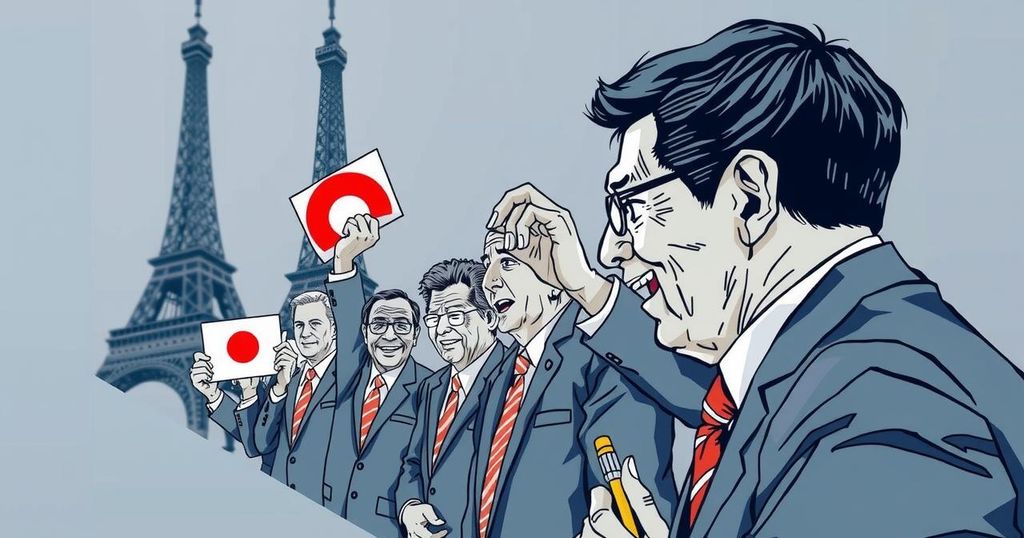Japan’s Snap Elections Reveal Deepening Voter Frustration and Political Shift
Japan’s recent snap elections have led to a significant decline in the dominance of the Liberal Democratic Party, signaling a shift towards more chaotic politics. The results reflect deep voter dissatisfaction stemming from economic stagnation and declining living standards, prompting gains for minority parties on both ends of the political spectrum. Analysts warn that this growing discontent could reshape Japan’s political landscape.
Japan’s recent snap parliamentary elections have significantly shaken the political landscape, suggesting that deep-seated voter dissatisfaction could lead the nation towards greater instability. Historically regarded as Asia’s most stable democracy, Japan has endured steady governance primarily through the Liberal Democratic Party (L.D.P.), which has dominated the political scene since World War II. However, in this election, the L.D.P. not only lost its majority in the lower house of Parliament but also faced strong competition from minor leftist and rightist parties that collectively gained ground. This shift highlights a growing sense of disenchantment among voters, particularly in the face of economic stagnation and declining living standards over the past three decades. Shigeru Ishiba, the newly appointed Prime Minister from the L.D.P., attributed the party’s poor electoral performance to a prolonged political finance scandal, yet analysts, including former diplomat Kunihiko Miyake, argue that voters’ frustration is rooted much deeper in the economic malaise affecting younger generations.
Japan has long been viewed through the lens of political stability, largely due to the L.D.P.’s continuous governance. The current elections, however, reveal a pivotal moment where increasing frustrations among the electorate are indicating a potential shift towards volatility similar to the populist movements seen in the West. The emergence of minority parties from both sides of the political spectrum in these elections exemplifies a significant change in voter sentiment against the backdrop of economic stagnation and a loss of faith in traditional political structures. As Japan faces these unprecedented challenges, the implications for its democracy and governance remain profound.
The recent elections in Japan illustrate a crucial turning point, where voter dissatisfaction threatens to disrupt the established political order dominated by the L.D.P. The gains made by minor parties, alongside the profound grievances related to economic stagnation, signal a pressing need for political reform and responsiveness to the electorate’s concerns. This shift raises important questions about the future trajectory of Japan’s political stability and the potential for a more chaotic democratic process.
Original Source: www.nytimes.com




Post Comment